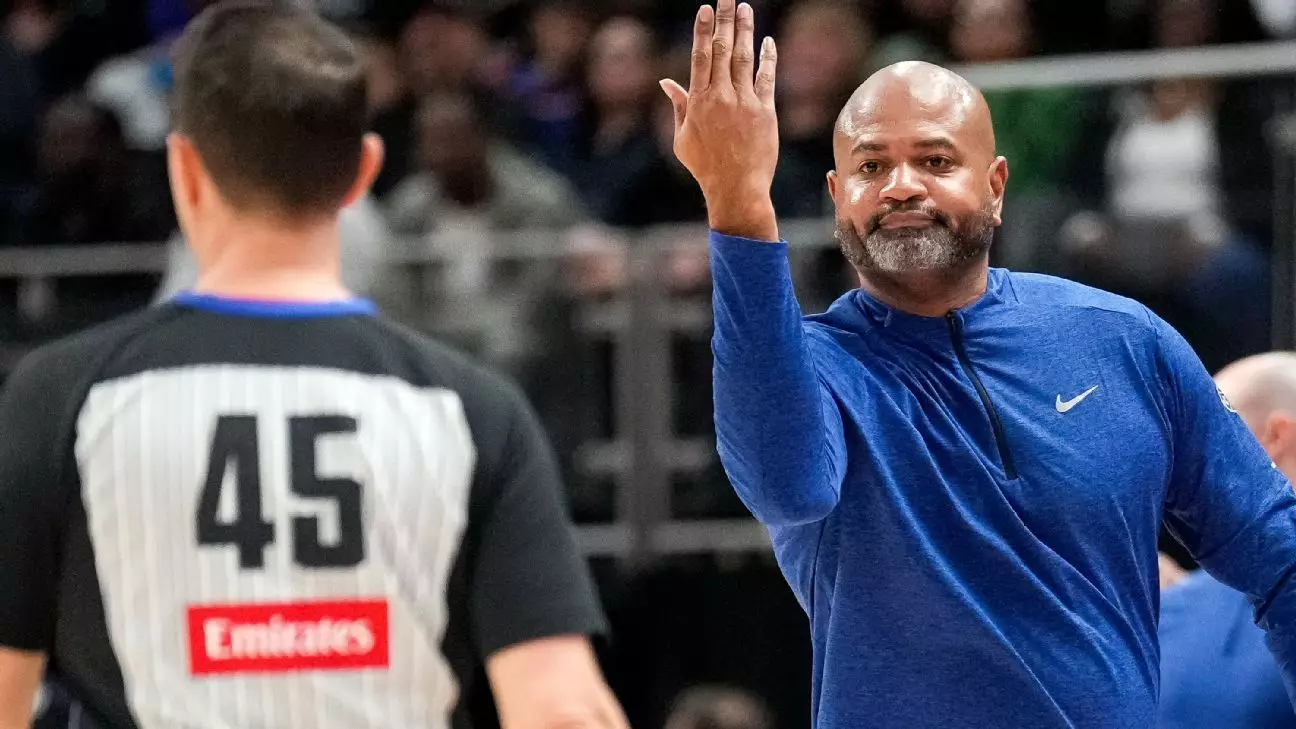Last Saturday, the NBA witnessed a gripping display of on-court drama that transcended the boundaries of normal game play. The clash between the Detroit Pistons and the Oklahoma City Thunder ended with the Pistons suffering a frustrating 113-107 defeat, but the real story unfolded in the third quarter. The dramatic overturn of game momentum happened not from the players’ effort but from the officials’ controversial calls. Under the incandescent spotlight, Coach J.B. Bickerstaff publicly lambasted the officiating crew, igniting a passionate debate around the inconsistency and perceived bias in the league’s refereeing standards.
During the third quarter, the Pistons were handed an astonishing five technical fouls, a number that seems almost absurd in the context of a professional basketball game. The officials effectively disrupted the flow of the game, leaving both players and fans bewildered, culminating in the ejection of star player Cade Cunningham after he received two quick technical fouls. Such a rapid sequence of events raises critical questions: Is the NBA prepared to hold its officials accountable for their decisions? What are the thresholds that warrant technical fouls, and could they be re-evaluated to keep the game fair and engaging?
The Fine Line of Respect
Bickerstaff didn’t mince words when it came to the level of officiating. His vehement criticism of the officials underscores a pivotal issue within the sport—an apparent lack of respect between referees and players. The coach’s disdain was directed at what he termed a “level of disrespect” that allegedly eclipsed any previous experience in his coaching tenure. The stakes in professional sports are undeniably high, and the emotional toll can be overwhelming. In this charged environment, players are athletes, but they are also human beings who deserve fair treatment. There is a deep-seated expectation for referees to mediate the game with a balanced perspective, but such a balance seemed absent in this instance.
Following the game, Brian Forte, the crew chief, justified the decision to assess technicals based on Cunningham’s supposed use of profanity and Schroder’s vociferous complaints, following an earlier team warning. Whether such an aggressive interpretation is warranted is open to debate, especially in the context of maintaining player discipline without dissolving the integrity of the game itself. Should players be penalized for expressing their frustrations in a heated moment? This situation beckons a rethinking of how officials communicate and engage with players, and how excessive punitive measures can fundamentally alter the outcome of a game.
Coaching and Strategy Amidst Controversy
Interestingly, Oklahoma City Thunder’s head coach Mark Daigneault chose to divert the focus away from the officiating debacle, offering insights into the game strategy instead. He commented on the crew’s “loose whistle,” indicating that the officials were known for allowing a certain degree of physicality in previous matches. This perspective emphasizes a critical aspect of sports: the importance of understanding how officiating biases impact coaching strategies and game preparedness. Coaches must adapt dynamically not only to their opponents but also to the subjective nature of refereeing—a variable that can be as unpredictable as a wild bounce of the basketball.
In essence, the events that unfolded on Saturday showcased the deep and often tumultuous relationship between players, coaches, and referees. Rather than simply being an episode in a single game, this controversy serves as a microcosmic illustration of a broader issue in the league. It calls for a thorough evaluation of officiating practices, instilling a need for greater accountability and consistency among referees. Ultimately, for the integrity of the game and the spirit of competition, improvements are not just necessary; they are imperative.

